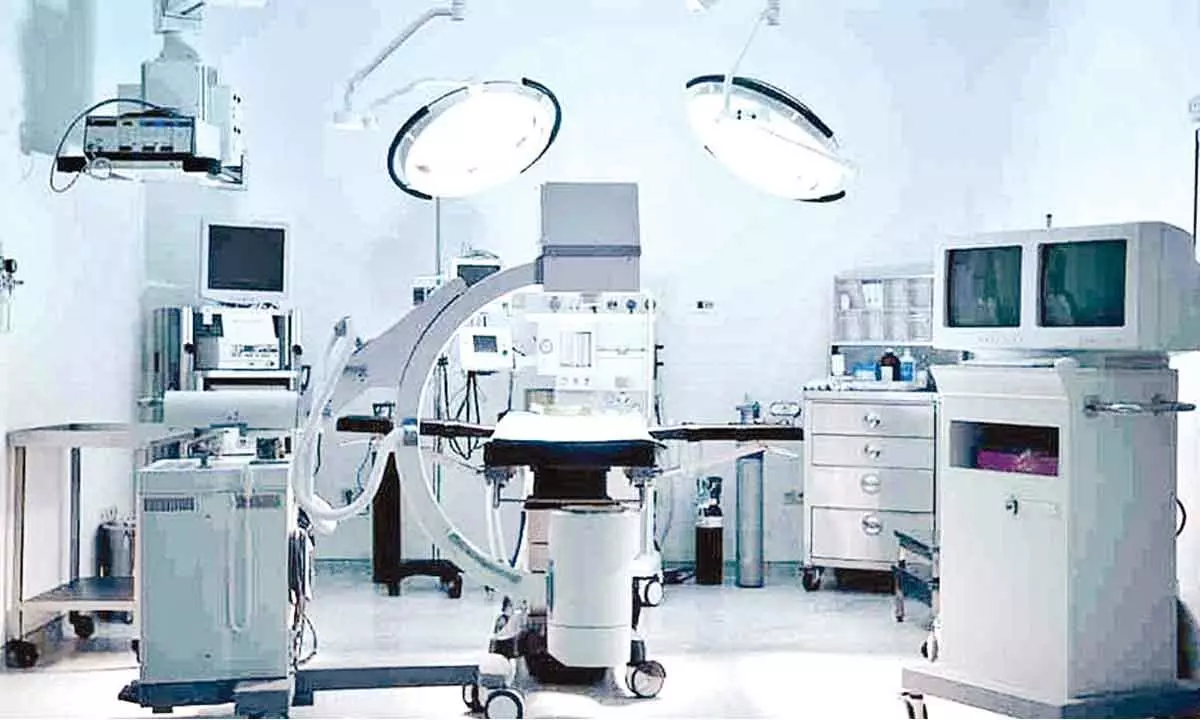Medical device industry needs separate legislation
The present approach of keeping the medical devices law under the drug regulations is restricting the industry in various levels as both are different in nature
image for illustrative purpose

The Union Ministry of Health and Family Welfare has recently released the draft of New Drugs, Medical Devices and Cosmetics Bill, 2022, a comprehensive legislation with provisions to regulate medical devices, clinical trials and online pharmacy, among others in order to keep pace with changing needs, times, and technology as against the pre-independence legislation of the Drugs and Cosmetics Act, 1940. The draft bill dedicates chapter VI to import, manufacture, sale, distribution and clinical investigation of medical devices, which was earlier dealt in the Medical Devices Regulation, 2017.
The chapter also deals with the appointment of medical devices officer with the regulatory authority and the powers of the officer. Similar in the case of drugs and cosmetics, the licensing authority has to issue an improvement notice to the licensee if they have failed to comply with any provision of the Act and if the licensee does not take measures to secure compliance within a period of 14 days, the officer can suspend or cancel the license after due procedure. Apart from the provisions to form Drugs Technical Advisory Board (DTAB), the Bill proposes constitution of Medical Devices Technical Advisory Board (MDTAB) to advise the Central Government and the State governments on technical matters pertaining to medical devices arising out of administration of the proposed Act.
Other than officials of the Health Ministry, the board will have officials from the Department of Atomic Energy, Department of Science and Technology, Ministry of Electronics and Information Technology, Defence Research and Development Organisation, and experts from the fields of biomedical technology, biomaterials, and polymer technology.
Under the ambit of medical devices defined by the draft Bill are diagnostic equipment, their software, implants, devices for assistance with disabilities, life support, instruments used for disinfection, and reagents or kits. The 1940 Act has medical devices as one of four categories of 'drugs.' However, drawing on the existing law on drugs, the draft Bill defines provisions for imprisonment or fines for 'adulterated' or 'spurious' medical devices.
The draft states that a medical device will be considered to be adulterated if it is rusted, corroded, filthy, putrid, or decomposed, packed or stored in unsanitary conditions, contains harmful or toxic substances, or has any component or software removed making it unsafe. The draft Bill deems a medical device to be spurious if it carries the label of a fictitious company or is purported to be of a manufacturer that has not manufactured it.
Quite on expected lines, the Medical Devices industry in the country is disappointed for not getting a separate Act for this sunrise industry. The medical devices industry has expressed its disappointment in the government not addressing its aspirations for a separate Act for the sector, while considering the new draft bill for the pharmaceutical and medical devices in the country. It also raised its concerns about the schedules in Chapter VI of the new Bill, which terms a medical device as adulterated if it consists in whole or in part, of rusted or corroded, among others. Surely, the aspirations of a Separate Act for Medical Devices have not been addressed and budding entrepreneurs and startups, developers and engineers will still need to grapple with a complex joint law.
The medical devices have a huge potential of investment of over Rs 50,000 crore to meet the market of over Rs 1,00,000 crore and the government should have made separate Act for the medical devices industry in the country. While framing the draft Bill, the government should have taken into consideration the fact that medical devices are engineering products and not homogeneous powders, tablets or liquids that can be adulterated. So treating a rusted part of a medical device as adulterated and criminal offence is absurd. Of course, a law needs to be simple, reasonable and implementable and should not become a barrier to Make in India or Innovate in India.
The current approach of keeping the medical devices law under the drug regulations is restricting the industry in various levels as both are different in nature. The medical devices industry has been urging the Central government to frame a separate Act for medical devices sector in the country, similar to the introduction of Food Safety and Standards Act for the food industry. The government should have heeded to the demands of the medical devices industry in the country. The medical devices industry is a sunrise sector in the country and the government should not have found wanting in acceding to the just demands of the sector.
(The author is freelance journalist with varied experience in different fields)

